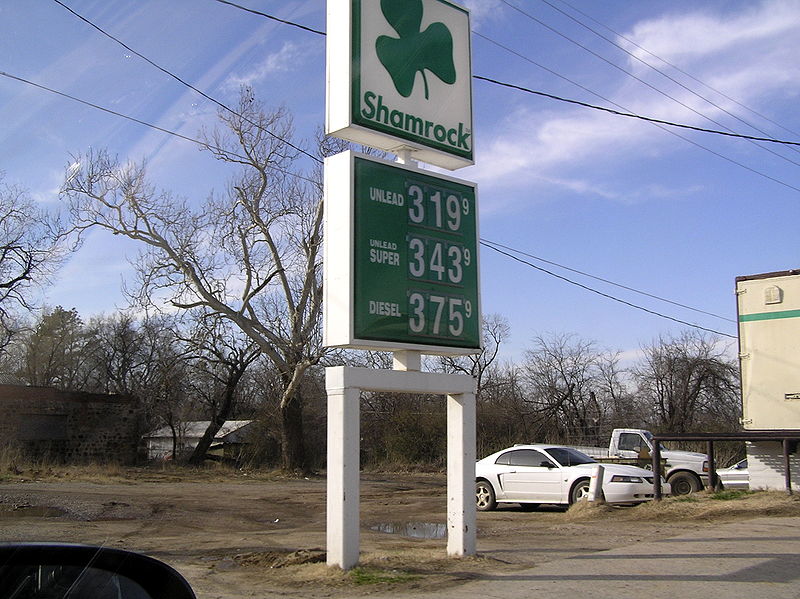
By Glenn Swain
The ongoing civil war in Libya and general instability in the Middle East are having a negative affect on fuel prices in the U.S., as the cost for a barrel of oil spills over the $100 mark. Sandwiched between the volatile oil markets are motorcoach owners and operators. As in 2008, when prices jumped to $5 a gallon, coach operators are now dealing with the rising cost of doing business.
In April 2008 Northfield Lines in Northfield, MN, began using a fuel calculation chart published by the Energy Information Administration of the U.S. Department of Energy to make calculations based on the monthly retail averages. The chart is a standard for most operators to use to fairly and accurately figure out surcharge percentages when high prices hit.
“We started the fuel surcharge at the base of $1.90 a gallon; anything above that we started adding a percentage,” says Northfield President John Benjamin. “In the Midwest right now the average is price of diesel fuel is $3.82. At that price our surcharge is 15.12 percent of the gross cost of the trip.”
“We’ve implemented an 8 percent surcharge,” says Luke Busskohl, the director of marketing for Arrow Stage Lines. “We’re not making extra money here; we just have to cover those costs. The surcharge goes down according to our fuel surcharge chart. Basically, our surcharges start around the $3.10 or above we start at 2 percent. We’re a nationwide company, and we’re watching fuel prices daily for what’s going on.”
Scott Bush, general manager of Colorado Charter Lines & Tours in Commerce City, CO is on the fence on whether to carry out a surcharge, as prices for diesel top $4 a gallon in most parts of the country.
“We don’t have a set policy yet, but we have to keep watching the fuel prices and adjust accordingly,” Bush says. “We’re at the point of a surcharge now, though. We have to pass that cost along just like everyone else does.”
Bush says operators really can’t compare 2008 with today’s current prices, noting that the markets and other factors are completely different.
“The charter bus market, the customer base, the competition, the pricing all has to be weighed in,” he says. “It’s not the same as it was three years ago.”
“By what we experienced in 2008, we know every time fuel costs change it adds new challenges for us with our customers,” Benjamin adds. “It’s easier when we can maintain the same cost. When it starts to change either up or down, customers start to question it. If fuel goes down they want to see the price go down. If fuel’s going up they want to know if our prices are going up. Fuel cost more money, but they expect you to eat that.”
Mid-American Coaches & Tours in Washington, MO has implemented surcharges.
“That’s about the only thing we can do, we have to keep margins,” says Mid-American President Roger Jones.
Like other motorcoach companies, Mid-American started surcharges back in 2008 when prices skyrocketed.
“I probably should have instituted it a little faster than we did before,” Jones says of his recent surcharge decision. “We held back hoping the prices would go back down.”
At Leprechaun Lines in New Windsor, NY, President Edward Gallagher, Jr. says his company has implemented a surcharge, but only on future bookings.
“I’ve found it’s not wise to do that on existing business,” Gallagher says.
While prices continue to fluctuate, Gallagher is taking steps to save fuel in the future. Along with utilizing a GPS system to monitor idling times and other gas-burning habits like speeding and hard braking, he’s looking forward by changing out bus differentials, an idea he got from a March 2011 BUSRide article on Kobussen Bus in Wisconsin. The company changed out differentials to improve mileage on their buses by one or two miles per gallon.
“I did that in 1999, but Kobussen has taken it to a new level,” Gallagher says. “I’m looking at that as well.”
Meanwhile in Canada, where companies there are paying for liters the equivalent of about $4.91 U.S. a gallon, many bus operators are raising prices to offset higher costs. But that’s not the case at Charter Bus Lines of British Columbia in Delta, British Columbia. Charter President Sheldon Eggen says some people are excessive when tacking on surcharges.
“We have never in 34 years ever charged a fuel surcharge,” Eggen says.
Earlier this year Eggen purchased new buses at a 30-percent discount. While he admits he did not cut his rates, he says the savings for customers come with no fuel surcharges.
“We don’t give a quote to our customers based on fuel prices from two years ago, and then say they have to pay more when fuel goes up,” Eggen says.
As many operators figure out their next move, one operator who’s keeping a cool head is Bush at Charter Lines & Tours.
“One way or another,” he says, “we’ll figure out how to get it done and keep the customers happy.”
